I’ve gone to bed feeling great, only to wake up congested and stuffy. I believe in natural healing. I believe it’s the soundest way of healing our bodies of disease. When I get a cold, I want to find the best teas for that cold.
To be the best tea for a cold, it has to serve various capacities. The best tea for a cold would have to clear out my sinus pathways, soothe my scratchy throat, and stop the sniffles. Sometimes, calming my nerves and making that headache disappear also. We all have things to do, and the last thing I need is this cold!

Fighting a cold
There are some precautions to take to help keep the colds away. Wash your hands and keep your hands away from your face, eyes, nose, and mouth. That’s so difficult to do, isn’t it?
Keep your immune system healthy by avoiding sugars, processed foods, and inactivity. Eating healthy and staying active helps build our immune system and keep the colds away.
Colds do happen. When they do, and that alien cold takes over your body turns into a cup of your favorite tea. The teas will help to strengthen your immune system and knock out the symptoms of your cold.
The best way to use tea to fight a cold is to drink it before you get a cold. I’ll list the best teas for a cold, and you can pick the best ones for you. Actual tea contains EGCG and L-theanine that help strengthen our immune system. Tea is also anti-bacterial, anti-inflammatory, and anti-fungal
While we talk about teas, we will concentrate on herbal tisanes as well. A tisane is not tea. Teas come from a singular plant, Camellia Sinensis. A tisane is an herb or spice.
The best teas for a cold
Green
I found this tea at a local-global market, pre-made, and for a bottled tea, it really is phenomenal.
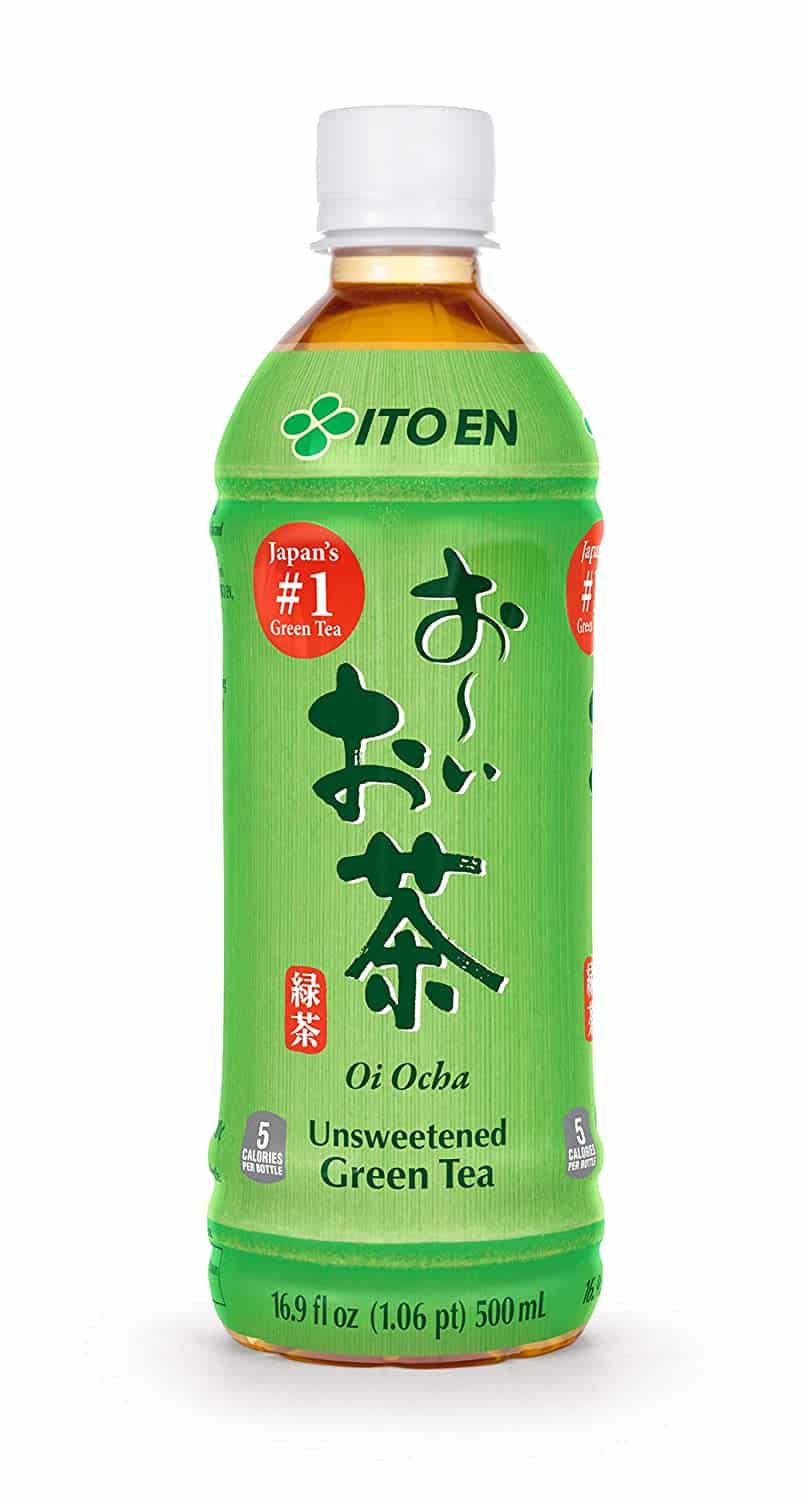
Green tea stands above them all to help lift the immune system, fight colds, and heal the body. Green teas are not fermented or oxidized. While all teas come from the Camellia Sinensis plant. All teas also contain their share of EGCG and L-Theanine. Green teas have the highest levels of antioxidants among all the teas
Green tea is credited with a long and growing list of health benefits. The healthy benefits help our body rest as well as help heal your cold.
- Heart health
- Brain health
- Blood flow
- Helps regulate blood sugar levels
- Reduces cholesterol levels
- Reduces inflammation
- Improves the memory
- Lowers blood pressure
- Helps Block brain plaques
- Calming effect – causes you to slow down while you prepare and sip.
While no tea or drink consumed alone will improve your life span or protect you from the disease. These are benefits and not a cure.
What are green teas? Here is a list of the most common ones:
- Sencha
- Gyokuro
- Matcha
- Tencha
- Genmaicha
- Hojicha
- Bancha
- Hojicha
- Kabusecha
- Longjing
- Anti bai cha
There are many more but this will give you a look into the Green tea world. Green tea has some amazing benefits. Add some hot water, a little honey and green tea makes that cold you are fighting a little bit easier to deal with. Green tea clears and soothes your throat, as well as membranes of the sinuses, are opened and relaxed.
Chamomile
Chamomile is one of the most relaxing herbs we brew to calm our cold symptoms.
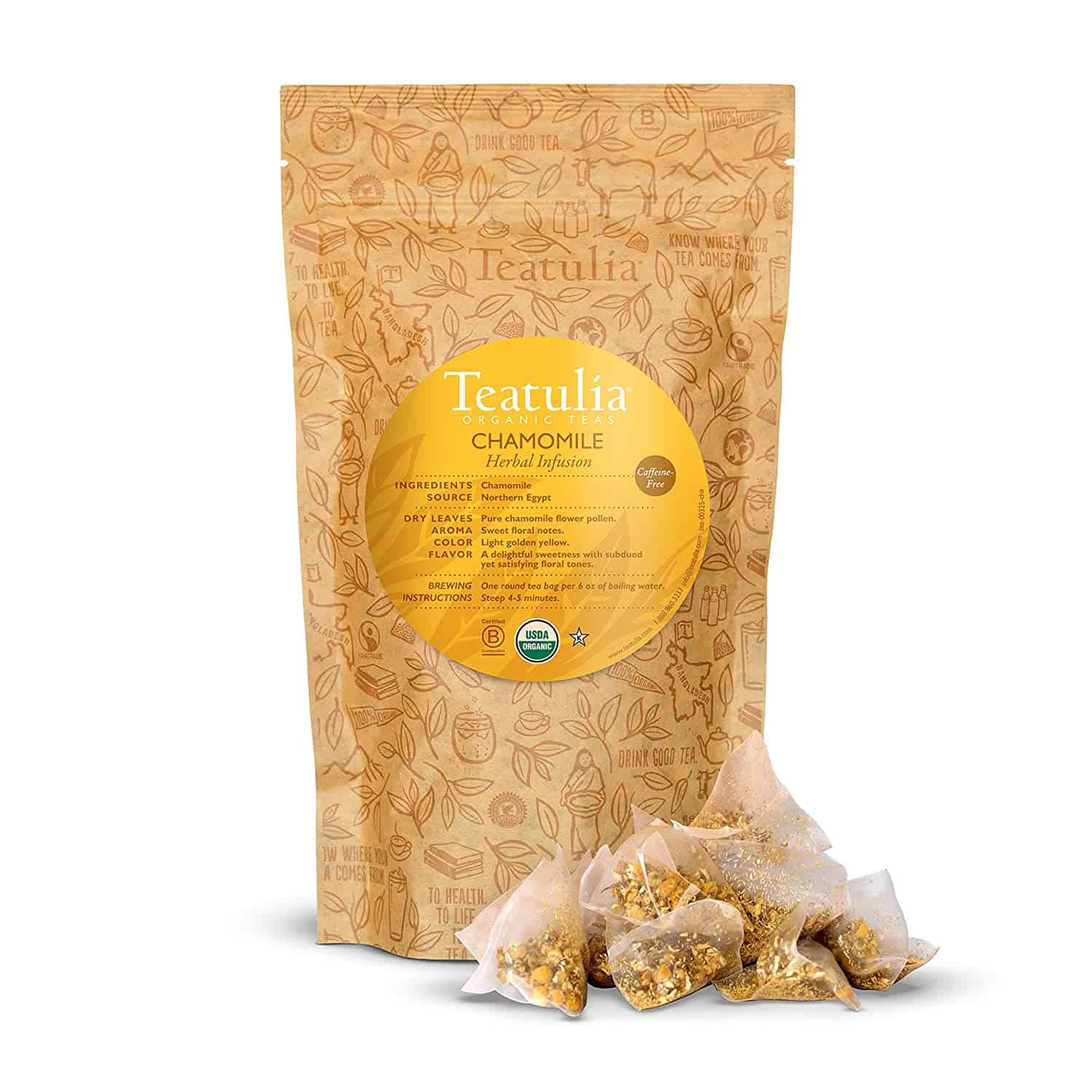
Chamomile is a flowering herb. Chamomile has a flavor that is earthy, light, and floral. Chamomile is another one of the best teas for colds. Chamomile is anti-inflammatory, relieves congestion, and boosts the immune system. Chamomile calms and comforts the stomach, body, and soul. Chamomile is relaxing. Use Chamomile on those nights when the congestion keeps you awake. Pour a cup of Chamomile and not only sip away but breathe in its scent and enjoy the relaxing benefits.
Some other health benefits of Chamomile include:
- Calms the stomach
- Helps with sleep
- Relieves stress
- Hair Care
- Menstrual Cramps
- Fights anxiety
- Fights depression
- Helps balance hormonal issues
- Heals a leaky gut
- Anti-inflammatory
- Antioxidant
- Release Congestion
- Increases Serotonin
- Increases Melatonin
- Rheumatic pain reliever
- Lowers pain levels
- Helps maintain healthy gums and teeth
There are a few cautions with Chamomile. Refrain from using if you are pregnant. Those who are allergic to ragweed should also avoid Chamomile.
Echinacea
The nice thing about echinacea plus is those added ingredients make for a better-tasting tea.
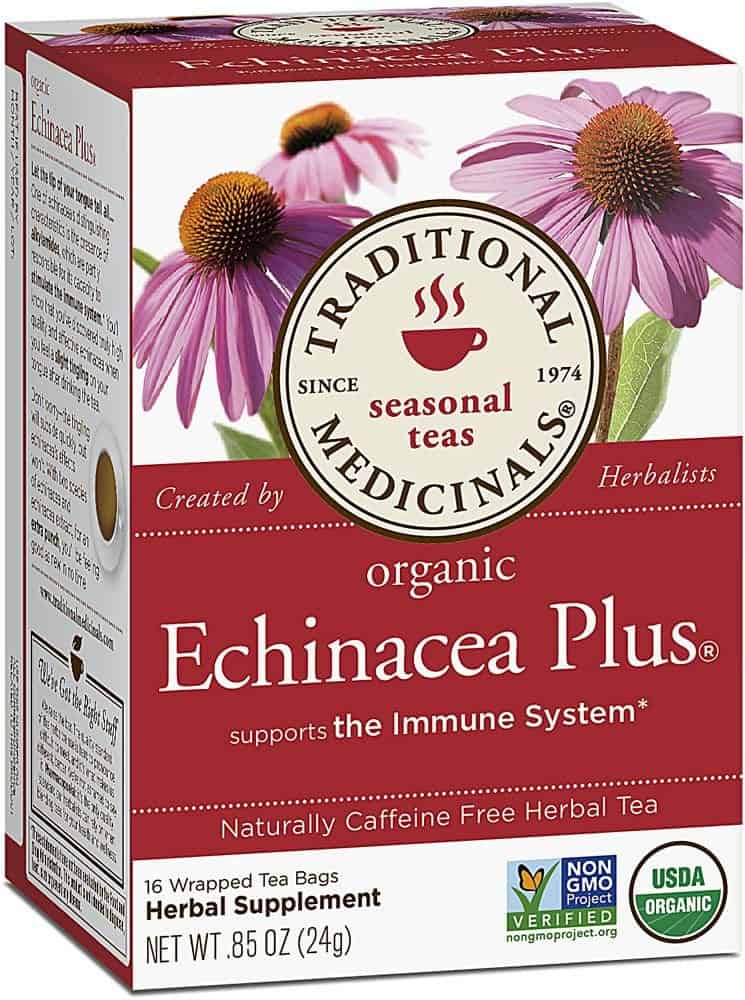
Echinacea is native to North America. Echinacea was used by the Great Plains Indian Tribe for over 400 years. Echinacea is the most sold herb. Before antibiotics, Echinacea was used. So first came Echinacea, then came antibiotics. The Flower and above are used for the Immune system simulations. Below, the flowers are used for volatile oils. The part of the plant above ground is the most effective. Echinacea helps fight colds by cutting the chance of getting a cold by 55%. It also reduces the duration of a cold by 1.5 days.
What are some other health benefits of Echinacea? Let’s see:
- Boosts the immune system
- Combats cancer
- Alleviates Pain – Indians used as a painkiller
- Helps the bowels
- Soothes headaches
- Helps with snake bites
- Sore throats
- Stomach aches
- Toothaches
- Upper respiratory issues
- Flu
- Strep
- Croup
- Coughs
- Asthma
- Fights infections
- Anxiety
- Depression
- Social phobias
Some precautions to Echinacea is to use it in moderation as too much can make you dizzy or cause nausea.
Ginger
I chose this ginger tea because of the added turmeric. Giving you that extra oomph of anti-inflammatory protection.
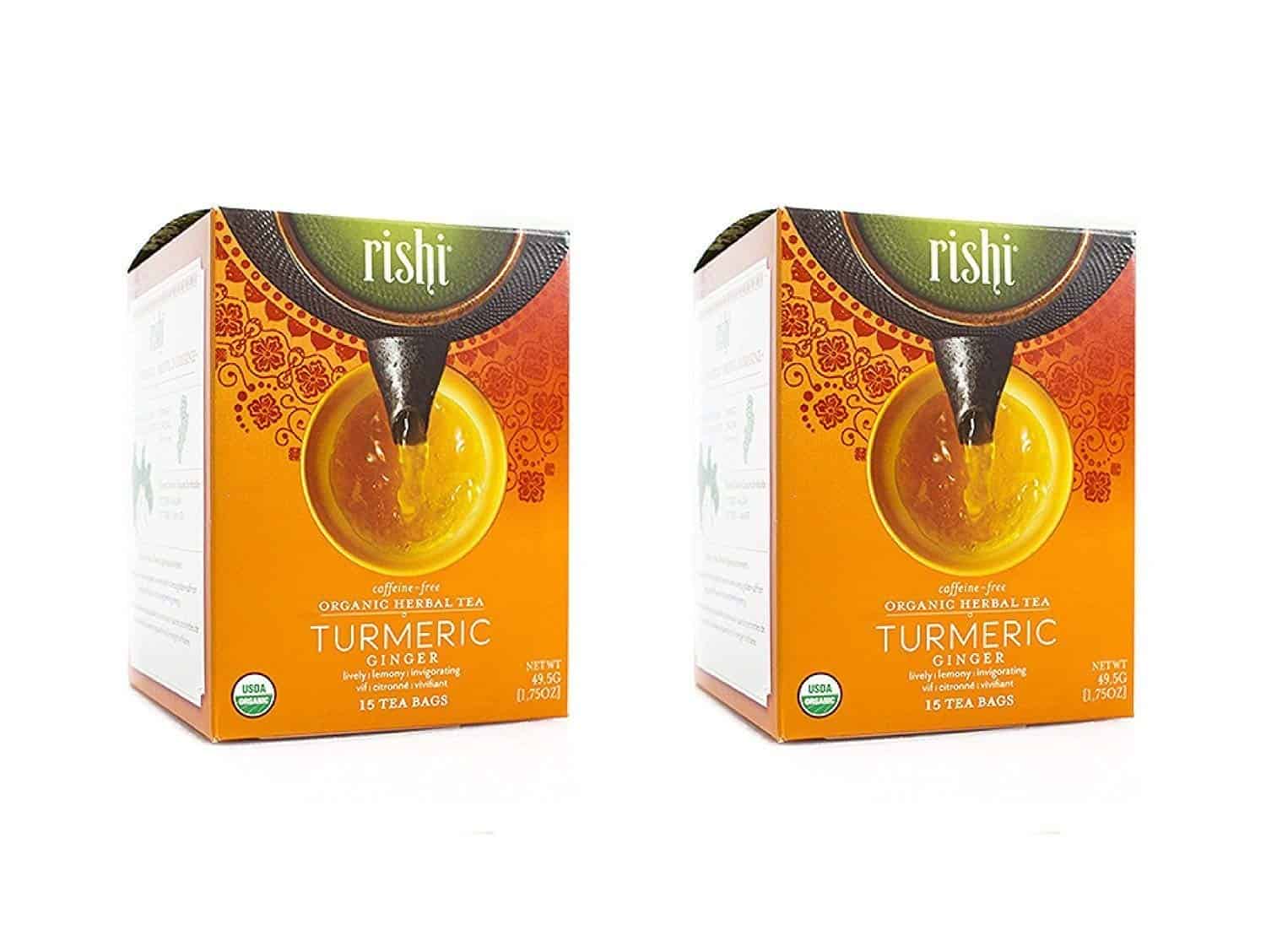
Ginger has been used for over 4,000 years by the Chinese and the Indians. Ginger is an amazing immune defense. Headed to the hospital or doctor? Drop a few drops of ginger essential oil in water for immune defense. Some drugs cannot match the power of ginger! With gingers immune fighting properties, it helps battle a cold and the cold symptoms. What is one of the best teas for colds? Ginger for sure?
Some extra benefits of ginger:
- Warms your body
- Improves your circulation
- Gout
- Food digestion
- Heart and stroke disease
- Nausea
- Motion sickness
- Congestion
- Stomach pain
- Relieves stress
- Builds immunity
- Fights cancer
- Alzheimer’s
- Cholesterol
- Arthritis
- Helps the body absorb nutrients
- Helps fight against staph and strep
There is an Indian Proverb that states: “Everything good is found in ginger.
Peppermint
Newman’s own is organic, and one great thing about this company is that they openly give back to the community!
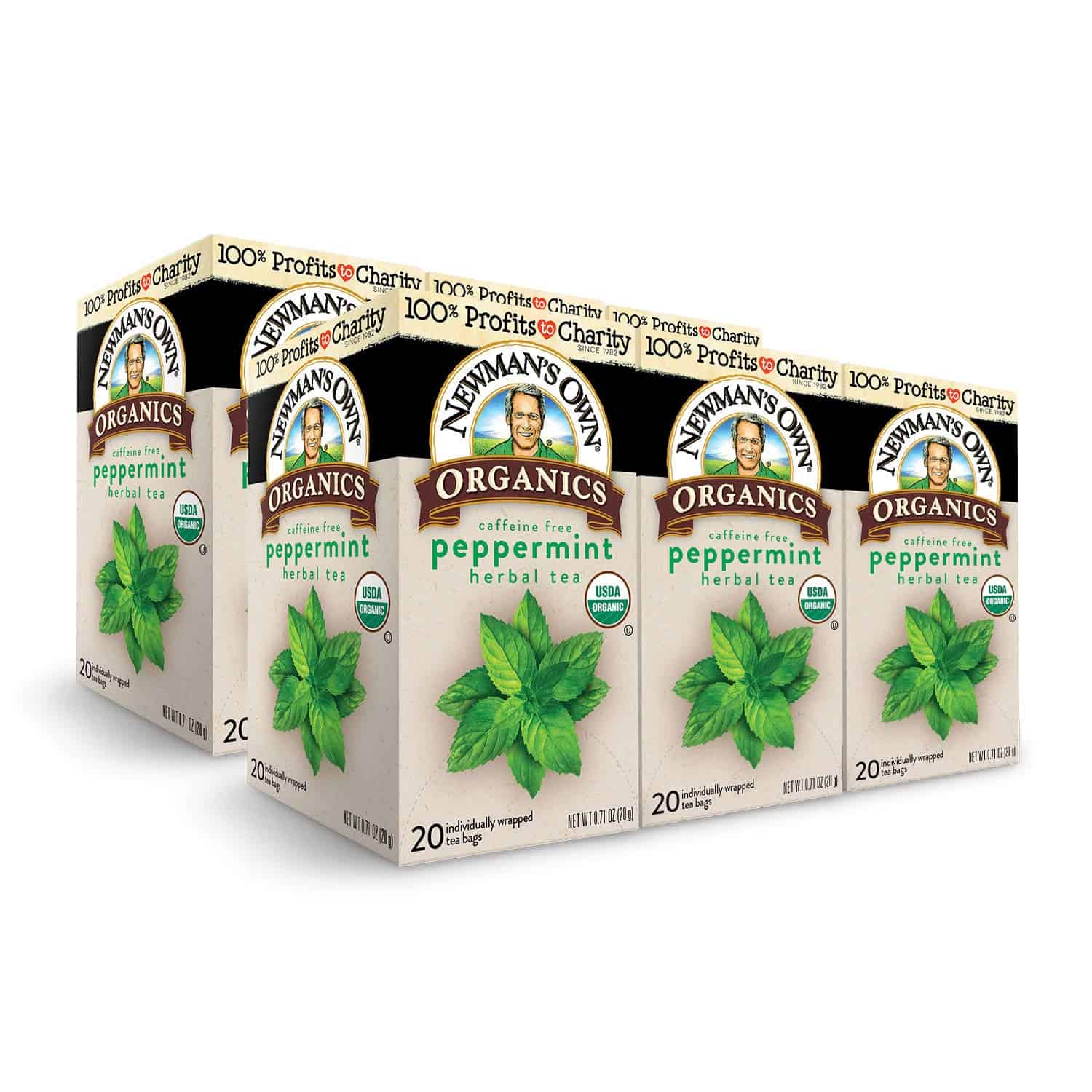
Peppermint is a great help when fighting the effects of a cold. Peppermint tea brings the spirit to the cup. The hot tea will make you sweat, and the menthol will cool you down. Peppermint is easy to grow, and the dried leaves make a perfect tea. It’s said the warming effects of peppermint help concentration.
Here are the other benefits of drinking peppermint tea:
- Sinus relief
- Migraines
- Congestion
- Headaches
- Throat / laryngitis
- Tension
- Seasickness
- Nausea / indigestion
- Stomach cramps
- Heartburn
- Gas
- Flu and cold symptoms
- Antioxidant
- Boosts a unity
- Helps with bad breath
- Digestive – helps the body move bile faster
Peppermint is known as a stomach healer. Peppermint is a natural decongestant and helps the body move gas and bile out of the system faster. By moving the bile and gas out, it is also removing the toxins and allowing the body to heal faster.
Turmeric
That powerhouse once again of Ginger and Turmeric!
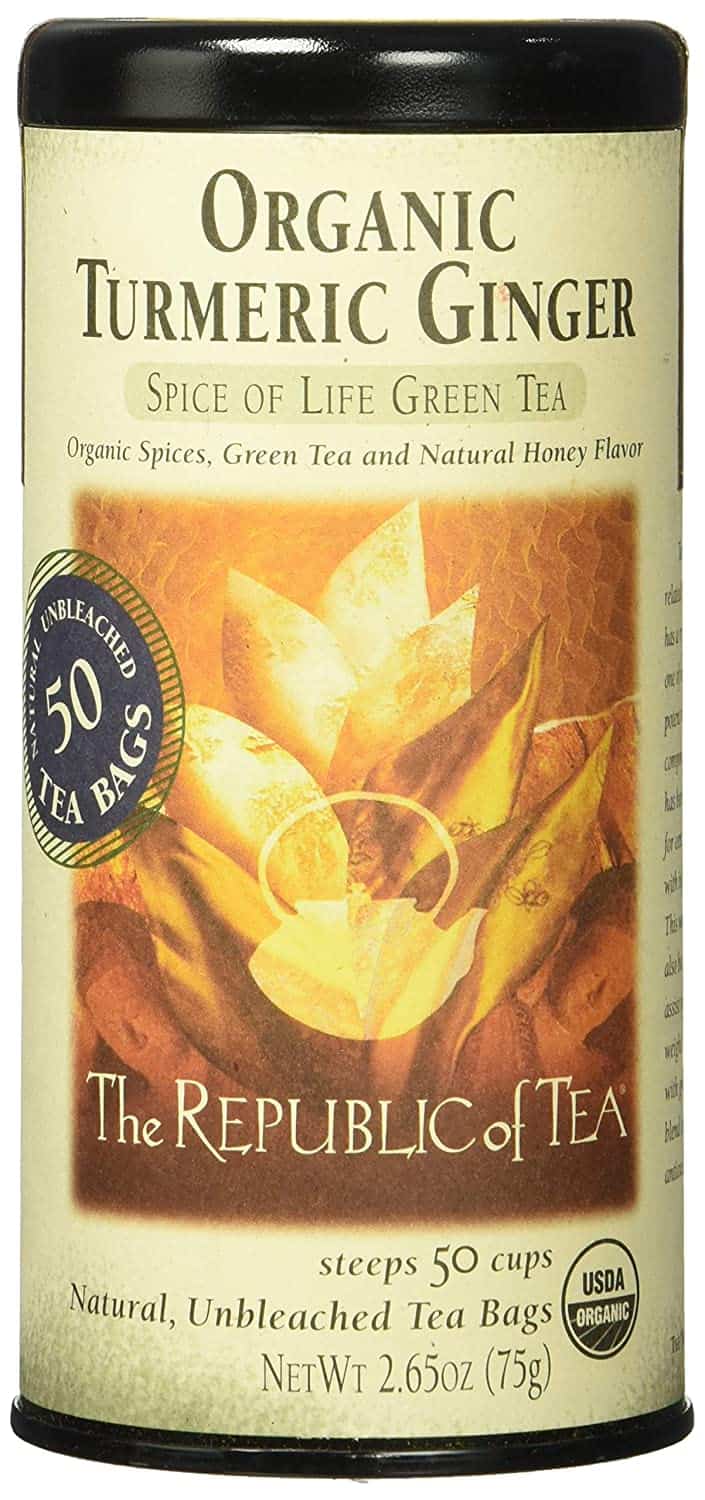
The active ingredient in Turmeric is Curcumin. Turmeric has over 10, 000 studies as to its health benefits. A couple of those studies called turmeric the cancer cell killer. Another one mentions how Turmeric outperformed chemotherapy. Turmeric is also an herb that will warm you up. Turmeric helps fight colds and flu with its immune system-building abilities.
Turmeric has numerous health benefits. I’ve listed a few below:
- Fights arthritis
- Helps the immune system
- IBS
- Alzheimer’s
- Liver damage
- Gallstones
- Depression
- Inflammation
- Diabetes
- Psoriasis
- Lupus
- Rheumatoid arthritis
- Chronic pain
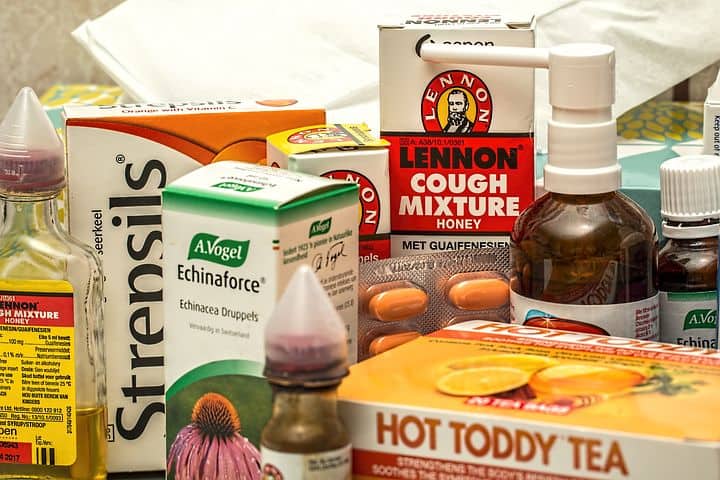
Extra herbs and spices that support your immune
The following herbs have added immune-strengthening properties. I wanted to add a few more herbs that you can use to help fight off that cold and its symptoms. These herbs can be consumed alone as a tea or infused with other ingredients to make a nice blend. Just like adding licorice root to any tea that may seem a bit bitter, it sweetens it up just a bit. That sweetness is natural and not going to mess with any glycemic levels.
Cinnamon
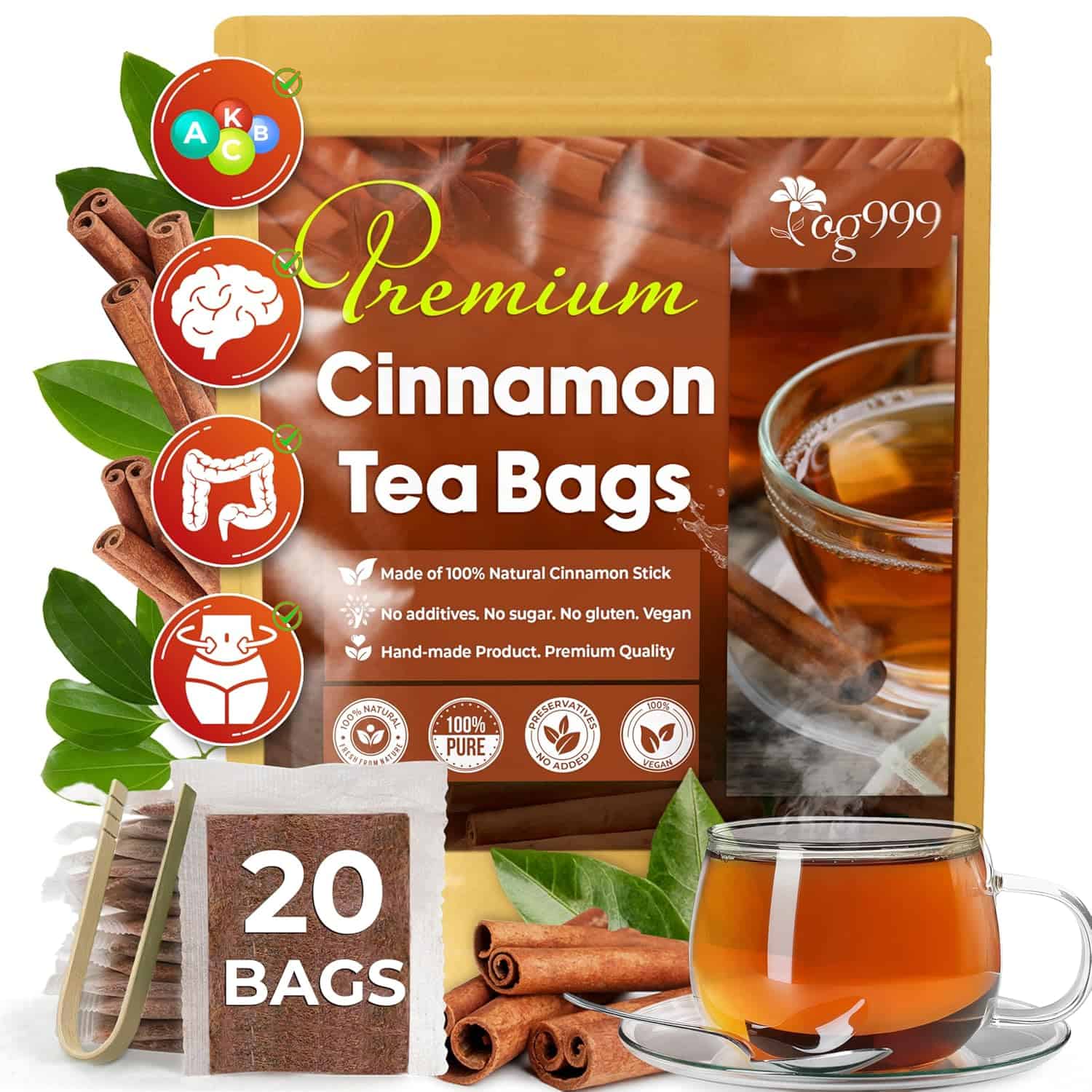
Cinnamon is produced by the bark of a group of trees from the Cinnamomum genus. These trees are classified as evergreens. The smell of cinnamon is from the oily part of the tree. The true healing part of cinnamon comes from the bark of a true cinnamon tree. There are two types today, Ceylon from Sri Lanka and Thailand. Cassia from China. The use of cinnamon dates back around 4,000 years.
Benefits include:
- Diuretic
- Anesthetic
- Fights yeast infections
- Warms the body
- Protects against heart disease
- Controls blood sugar levels
- Lowers cholesterol
- Anti-inflammatory
- Fights infections / viruses
- Fights against candida
- Insect repellant
- Fights free radicals
- Battles stomach flu
- Calms I.B.S.
- Can improve
- Sex drive
- Arthritis
- Bad odors
Some precautions with cinnamon. You don’t want to inhale cinnamon, that’s just going to be some kind of uncomfortable. Also, remember that viral cinnamon challenge going around the internet? Yeah, you want to stay away from that as well.
Clove
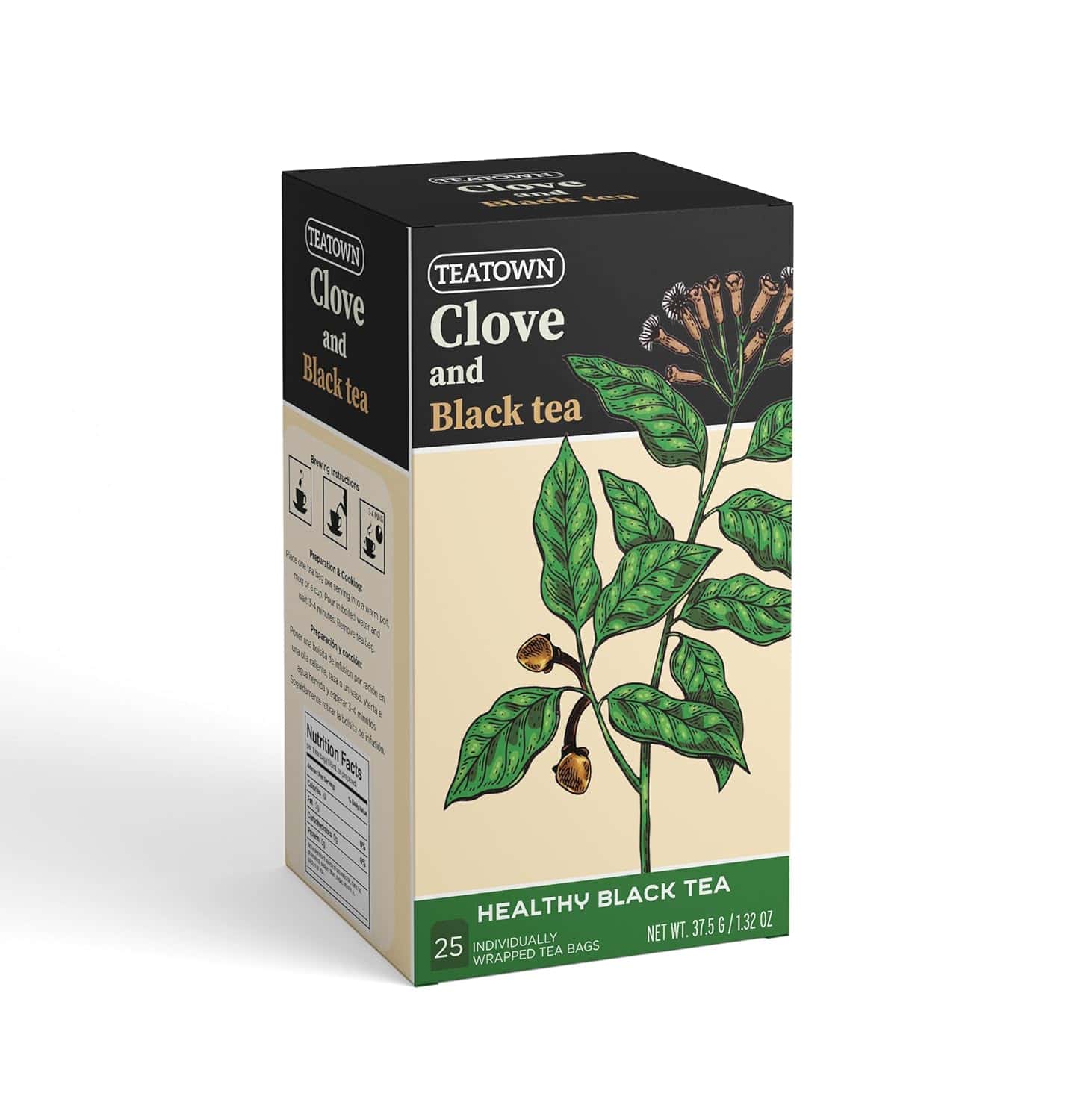
The active ingredient and scent in the clove is eugenol. Eugenol has antiseptic and anesthetic properties. Clove is a native of Indonesia, India, Sri Lanka, and Pakistan. How does clove help fight colds? Clove kills bacteria and fungus-like oral thrush.
Other benefits of clove are:
- Soothes the stomach
- Ease gas pain and diarrhea
- Stimulated blood flow
- Stimulus saliva and gastric secretions
- Aid digestion
- Kills bacteria, fungus, and infections like oral thrush
- Kills nasty parasites
- Improves blood circulation
- Kills mold and fungus
- Helps with gum disease
- Soothes toothache
Clove can cause blood thinning when consuming large amounts. It can be toxic to the liver and kidneys if taken in large amounts as well.
Elderberry
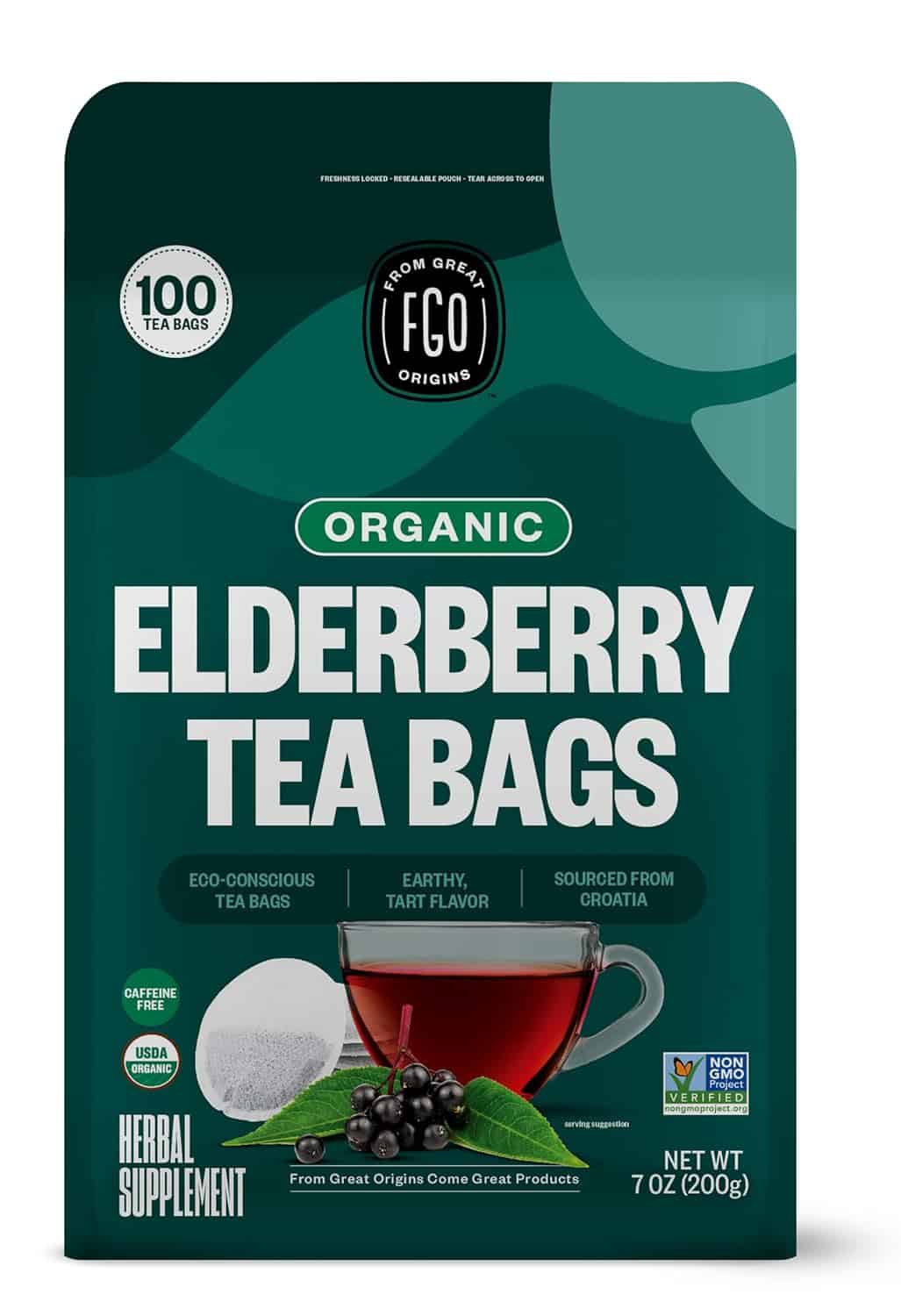
The berries and flowers of elderberries are packed with antioxidants and vitamins. This helps boost your immune system. Some experts recommend elderberry to help prevent and ease cold and flu symptoms. Elderberry is the dark purple berry from the European elder tree. Today, elderberry is most often taken as a supplement to treat cold and flu symptoms. Not to be confused with American Elder, Elderflower, or Dwarf Elder.
Some Elderberry benefits:
- Toothaches
- High Cholesterol
- Gum inflammation
- Boost immune
- Improve vision
- Cleanse the body
- Speed up metabolism
- Lower inflammation
- Aids in healing
- Indigestion
- Reduce cardiac disease
- Normalize blood sugar
- Natural diuretic
- Natural laxative
- Fights the common foods
- Sciatica
- Hay fever
- Nerve pain
- Chronic fatigue syndrome
The cooked elderberry fruit seems to be safe. The raw and unripe fruit might cause nausea, vomiting, or severe diarrhea. Elderberries may cause the immune system to become more active. This could increase the symptoms of autoimmune diseases.
Lemongrass
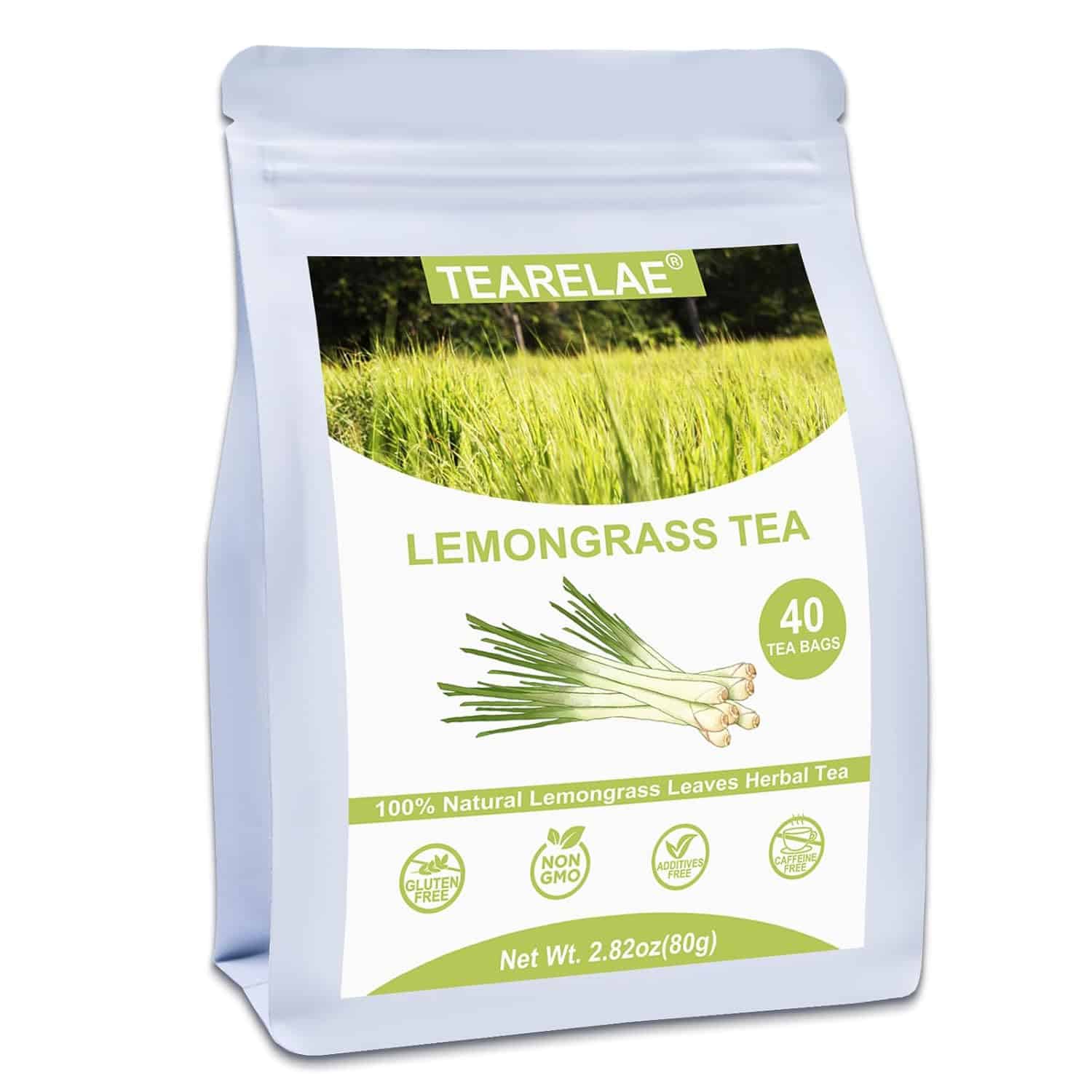
Lemongrass is a plant whose leaves and oils equal medicine. Lemongrass is full of vitamins like A, B1, B2, B3, B5, B6, C, and Folate. These minerals are also part of lemongrass:
- Potassium
- Calcium
- Magnesium
- Phosphorus
- Manganese
- Copper
- Zinc
- Iron
Wow, that’s a lot of good healthy stuff. Lemongrass kills germs and assists the immune system. This helps fight colds and all their nasty symptoms.
Lemongrass is far greater than just a cold and cough fighter, here are some more benefits:
- Helps the digestive tract
- Stomach Ache
- High Blood Pressure
- Vomiting
- Pain/Aches/Fever
- Kills germs
- Boosts metabolism
- Insomnia
- Calms muscles and nerves
- Fights cholesterol
- Cellular health
- Nervous system
- Healthy skin
- Removes toxins
Licorice Root
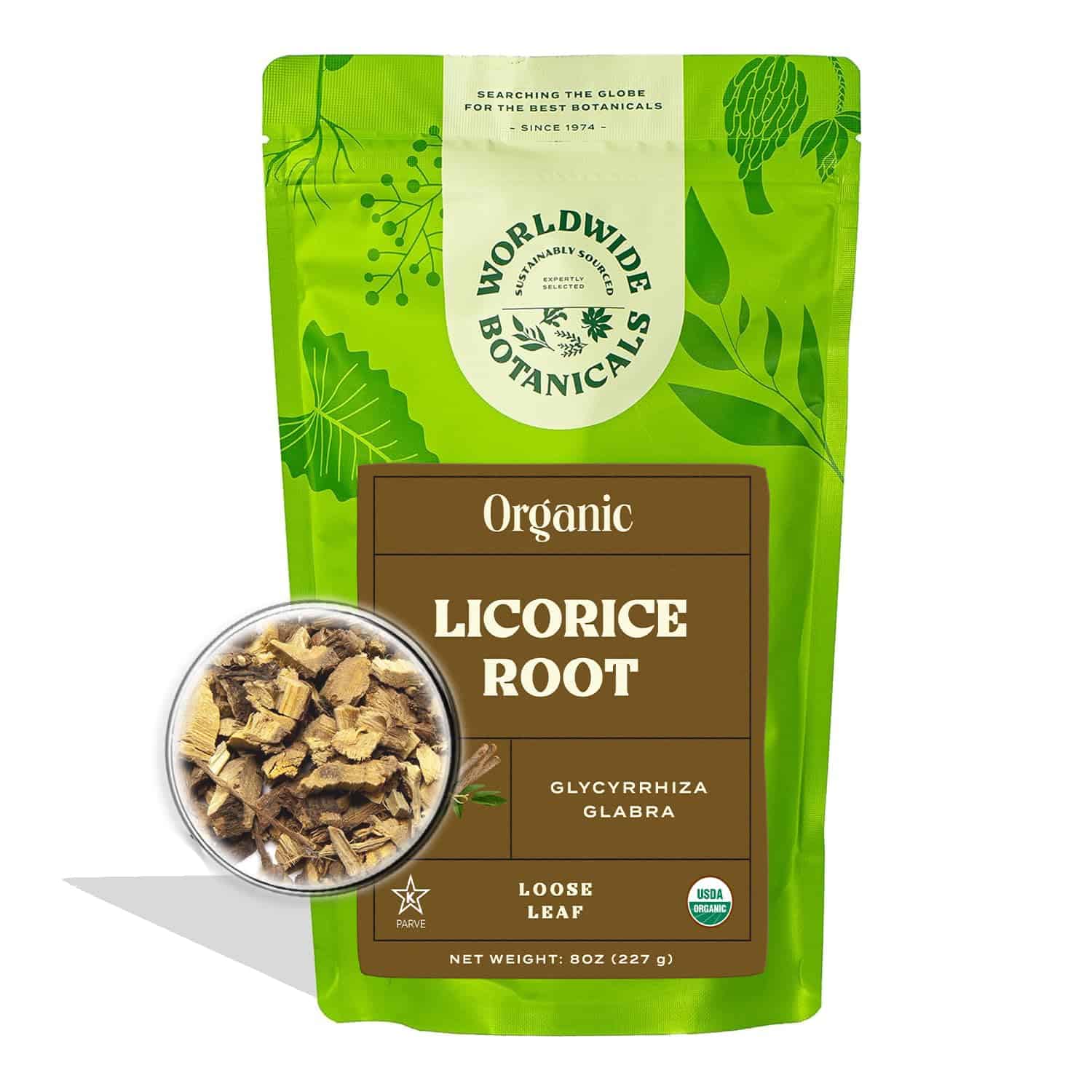
Licorice root is an adaptogen herb. The licorice plant is an herbaceous perennial legume. It is native to the Middle East, southern Europe, and parts of Asia, such as India. Licorice root is one of the most widely used herbs worldwide. It is the single most used herb in Traditional Chinese Medicine today. Licorice is harvested from the plants’ roots and underground stems.
In addition to colds, coughs, and sore throats, let’s look at some more benefits:
Tonic for the adrenal glands
- Allergies
- Asthma and Hay Fever
- Stomach Ulcers
- Leaky Gut Remedy
- Heartburn / Acid reflux
- PMS
- Pain Relief
- Nausea remedy
- Gout / Arthritis
- Respiratory help
- Helps hair loss while drinking and applying topically
You want to avoid when pregnant and can interact with certain medicines. No more than 8 oz of Licorice Tea per day.
Marshmallow
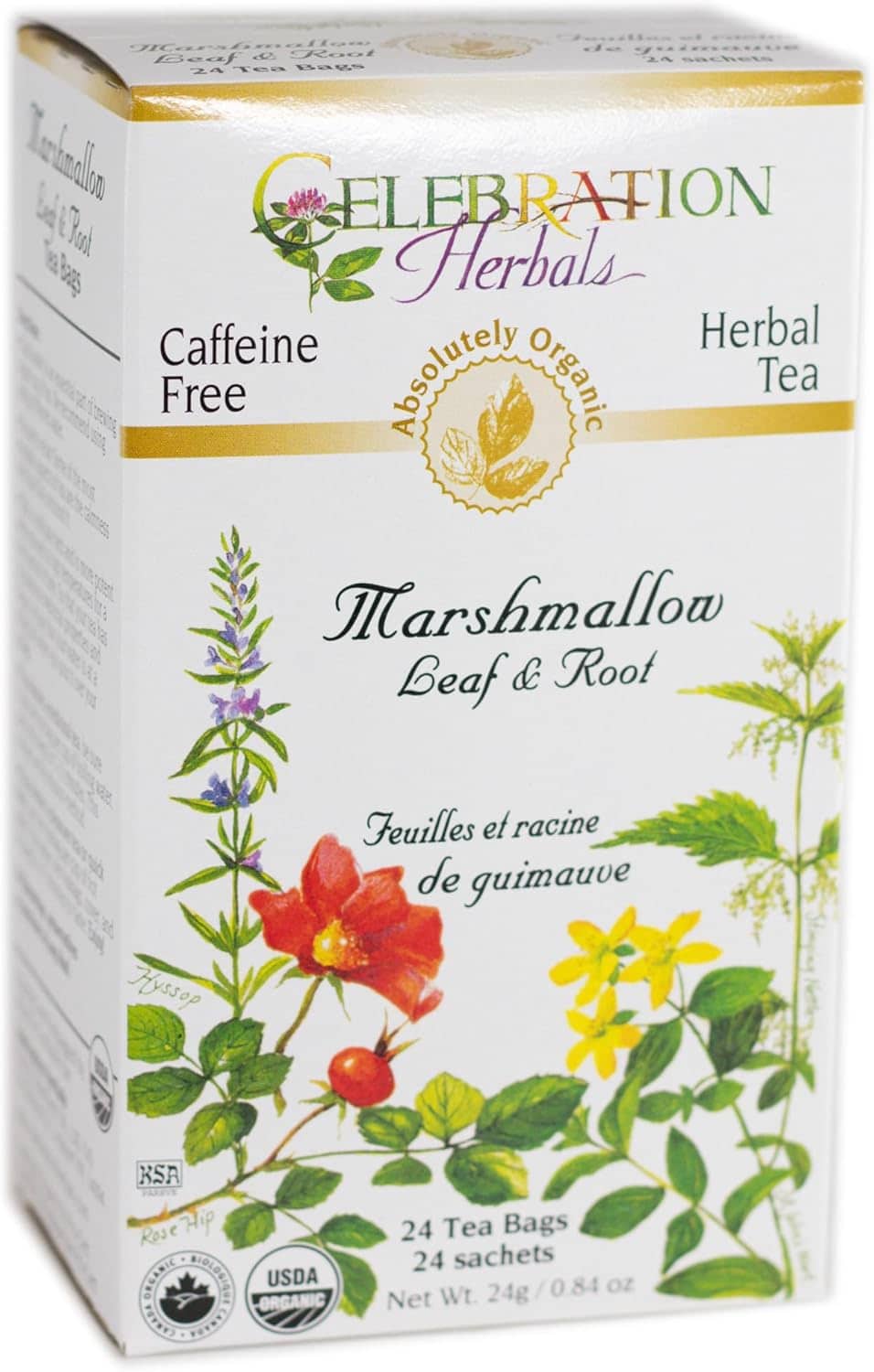
No, not the fluffy white kind, but the root. Fluffy marshmallow got its name from marshmallow root because the root was originally used to make the confection. Today, candy marshmallows typically do not contain the herb. Instead, they consist of sugar and gelatin. Marshmallow root is a flowering plant that is native to Africa and parts of Europe. Marshmallow root is a natural “water pill” or diuretic. The medicinal properties of marshmallow root come from the sap-like substance that the plant produces. Marshmallow leaf and root are used for pain and swelling of the mucous membranes that line the respiratory tract. They are also used for a dry cough.
Now let’s see what else Marshmallow root can do:
- Inflammation
- Kidneys
- Muscles, Sinews aches, and pain
- Larynx
- Bronchitis
- Coughs
- Colds
- Treats infections
- Improve digestion
- Flu fighter
- UTI -Kills bacteria
- Kidney stones
- Heartburn
- Treats leaky gut
- IBS
- Chrones
Jasmine
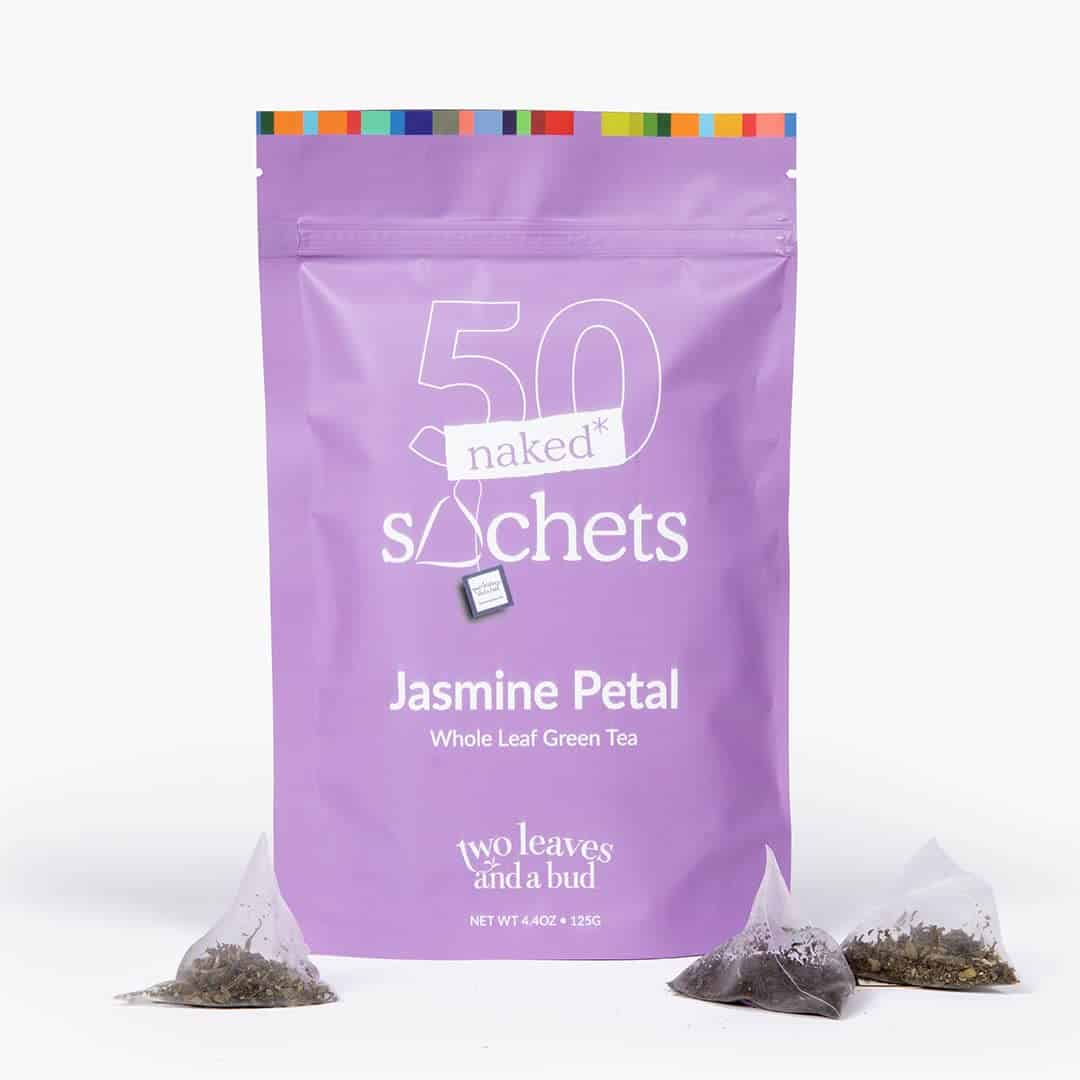
Oh, Jasmine. Jasmine is not an absolute herb but is a tea flavored with Jasmine flowers. The most common is the Jasmine Pearl. The scent is incredible and soothing. Jasmine tea is created by using 2 tea buds / 1 tea leaf rolled into a ball and infused with Jasmine flowers. Jasmine tea helps fight colds and boosts the immune system.
But what else does Jasmine tea help? Let’s look at these benefits:
- Reduces bad cholesterol
- Raises good cholesterol
- Anti-aging
- Reduces stress
- Fights bacteria
- Improves circulation
- Prevents diabetes
- Protects your heart
- Helps digestion
- Reduces pain
- Anti-bacterial
- Reduces the risk of heart attacks, breast cancer, and lung cancer
- Helps with intestinal troubles

Summary
I no longer run to the drug store shelf when I am under the weather with a cold. I’ve started to educate myself on the best teas for colds. I can use it to help make my life easier and, in the case of a cold, breathe more easily.
Our colds don’t have a chance with all these amazing herbs. Our world is full of amazing herbs and spices that are so beneficial to us. Some of these you can even grow yourself. Something I’ve started to do is grow herbs.
It’s starting to get cold in the Midwest; it’s time to prepare for this weather. Get those herbs ready, and let’s hope we don’t have to use them for colds. Let’s just enjoy the incredible flavor and aroma of a good herbal tisane. Equally as much enjoy that incredible green tea!


2 thoughts on “There Is Only One Best Tea For A Cold”
Very Informative. I believe tea is healing to the mind, body and soul. Thank you for the useful information. 🍵☕
Thank you for your kind words. I love what I do. Tea is amazing!